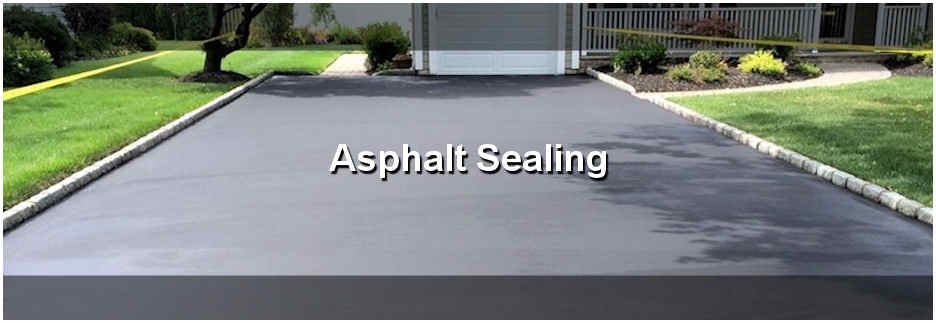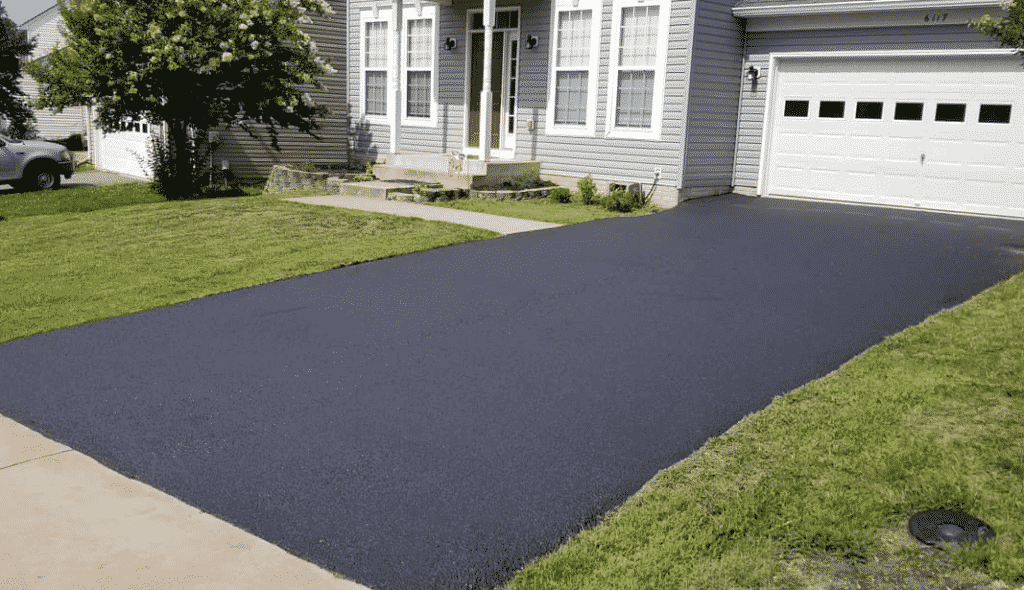Seal in High Quality: Professional Solutions for Asphalt Repair and Sealing
Seal in High Quality: Professional Solutions for Asphalt Repair and Sealing
Blog Article
Cold Mix Asphalt Vs. Hot Mix Asphalt: Which Is Right for You?

Structure Distinctions
Cold mix and hot mix asphalts vary significantly in their structure, with distinctive qualities that influence their efficiency and applications. Cold mix asphalt is produced by emulsifying the asphalt binder with water and an emulsifying representative prior to blending it with aggregate. This technique permits for the asphalt to be workable at lower temperature levels, making it ideal for momentary fixings and for use in colder weather condition problems. Warm mix asphalt, on the other hand, is manufactured at high temperatures, commonly in between 300-350 ° F, which helps to accomplish much better compaction and a much more sturdy end product. The hot mix asphalt production process includes heating the aggregate and asphalt binder separately before integrating them at the asphalt plant.
Additionally, chilly mix asphalt has a tendency to be much less dense and extra adaptable than warm mix asphalt. This flexibility makes it much better fit for areas with higher levels of movement, such as driveways or roadways with rush hour. On the other hand, warm mix asphalt is understood for its high longevity and resistance to rutting and cracking, making it a recommended selection for freeways and high-traffic roads where longevity is essential.
Installation Refine Variations
The procedure of mounting cold mix and warm mix asphalt exhibits significant differences in their procedures and demands. In comparison, hot mix asphalt requires an extra sophisticated setup process. Due to the home heating demands, warm mix asphalt check my reference installations are commonly carried out by experts with customized tools, guaranteeing a much more irreversible and structurally sound outcome.
Resilience and Longevity Factors
When considering asphalt alternatives, durability and longevity are critical aspects to examine for long lasting pavement efficiency. Warm mix asphalt (HMA) is recognized for its outstanding toughness and longevity.
In terms of longevity, HMA normally outshines CMA because of its superior stamina and resistance properties. HMA sidewalks have a longer life span, requiring much less regular repair work and upkeep, which can equate to set you back savings over time. Furthermore, HMA pavements are a lot more easily personalized to meet details project needs, even more boosting their sturdiness.
Price Considerations
Taking into consideration the economic effects is a crucial aspect when examining the option in between hot mix asphalt (HMA) and chilly mix asphalt (CMA) for pavement projects. While the initial cost of warm mix asphalt is typically greater than that of cool mix asphalt, HMA usually gives an extra economical option in the long run due to its exceptional sturdiness and longevity.
In addition to product costs, it's crucial to think about the expenditures connected with installment and maintenance when contrasting HMA and CMA. Ultimately, the decision in between HMA and CMA should take right into account not simply the preliminary price but likewise the long-term monetary effects to determine the most economical alternative for the particular sidewalk task.
Environmental Impact Contrast
Comparison of the environmental influences between warm mix asphalt (HMA) and cold mix asphalt (CMA) reveals distinct differences in sustainability practices. HMA production requires high temperatures, leading to boosted power usage and greenhouse gas exhausts.
Furthermore, the usage of CMA commonly includes recycling existing asphalt sidewalk, promoting Website source conservation and lowering the quantity of waste sent to land fills. By choosing for CMA over HMA, road building projects can add positively to ecological conservation initiatives.
Conclusion
In final thought, the selection between cool mix asphalt (CMA) and warm mix asphalt (HMA) depends upon numerous elements such as make-up, installation process, durability, durability, price, and environmental effect. asphalt repair. While CMA provides a cost-effective and quick option for small repairs, HMA makes sure premium durability and durability for hefty web traffic locations. Consider these factors very carefully to establish which kind of asphalt is the useful content right choice for your paving needs

Thinking about the economic implications is a critical aspect when examining the choice between warm mix asphalt (HMA) and cool mix asphalt (CMA) for pavement jobs. While the first cost of hot mix asphalt is normally higher than that of cold mix asphalt, HMA commonly provides a much more economical solution in the long run due to its remarkable longevity and longevity. angle parking.Contrast of the ecological influences between hot mix asphalt (HMA) and cold mix asphalt (CMA) exposes unique distinctions in sustainability techniques.In conclusion, the choice between cold mix asphalt (CMA) and hot mix asphalt (HMA) depends on different aspects such as composition, installment process, longevity, long life, price, and environmental impact
Report this page